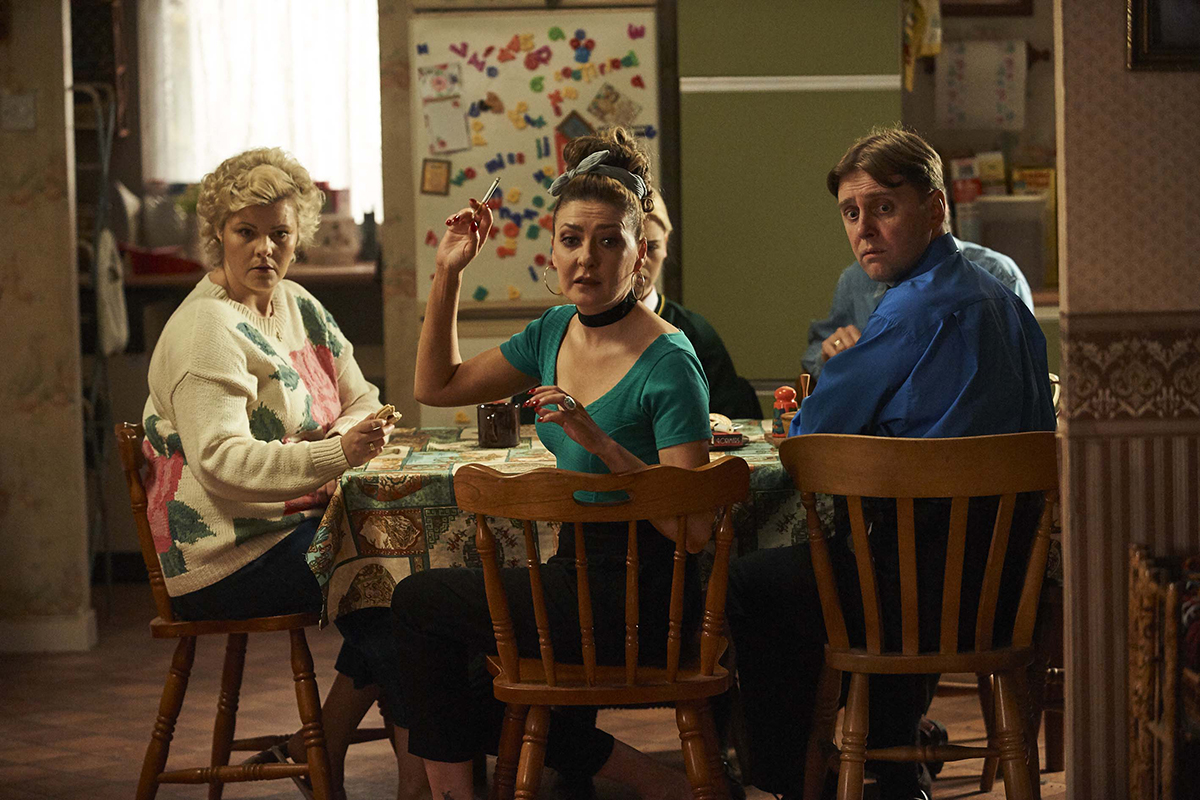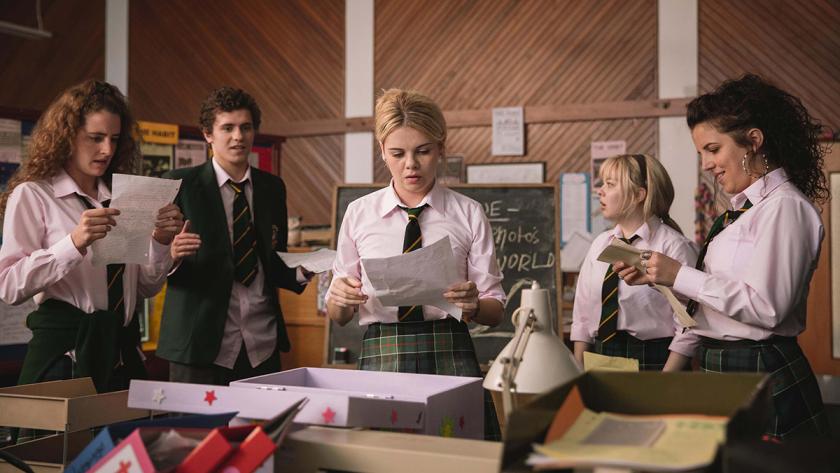When first announced, Derry Girls seemed a strange prospect. Derry during The Troubles wasn’t an obvious choice for a sitcom; neither was writer Lisa McGee, whose only previous comedy outing London Irish was slammed for negative stereotyping. Not many would have predicted one of the funniest new shows of the year, but that’s what we got.
In last night’s final episode, Erin seized control of the school’s magazine after the editor was struck down by illness. Abandoned by the team for her brazen opportunism (and basic lack of decency), she formed a ragtag editorship from the only friends she has. She soon realised her ambitions surpassed anyone’s writing ability, but found saviour in an anonymous student’s essay about being gay.
The four lead girls (and one unfortunately English boy) have been a brilliantly dysfunctional group, barely held together by self-serving interests and familial ties. Last night’s episode magnified the fragility of their friendship, with everyone doubling down on their worst instincts. It’s difficult making selfish people likeable, but from Erin’s elastic expressions to Michelle’s devious schemes, they strangely complement each other’s shortcomings. However, it’s in Derry Girls' supporting cast that it really stands apart: Siobhan McSweeney’s gloriously cynical Sister Michael; Tommy Tiernan’s browbeaten Gerry; and Tara Lynne O’Neill’s hawkish Mary (pictured above) – the stories thrive when they cast the net wide over Derry. A special mention must be given to Ian McElhinney: he may have been the greatest swordsman in Westeros, but he’s never been more intimidating than as Granda Joe.
However, it’s in Derry Girls' supporting cast that it really stands apart: Siobhan McSweeney’s gloriously cynical Sister Michael; Tommy Tiernan’s browbeaten Gerry; and Tara Lynne O’Neill’s hawkish Mary (pictured above) – the stories thrive when they cast the net wide over Derry. A special mention must be given to Ian McElhinney: he may have been the greatest swordsman in Westeros, but he’s never been more intimidating than as Granda Joe.
Despite its unlikely setting, Derry Girls is a surprisingly traditional sitcom. It doesn’t rely on surreal situations (eg Father Ted), or gross-out set pieces (The Inbetweeners); the comedy leans toward farce, with characters becoming embroiled in their own ambitions and lies. Backed up with some Nineties nostalgia and quick one-liners, the series has boasted a strong laughter hit-rate.
The show has never found its comedy in the political situation of Derry, even though set during The Troubles. Instead, it has drawn from people’s inconveniences from their everyday life, such as bomb disposal closing the bridge to the tanning shop, or accidently driving into the Orange Order march. Life went on, and this was demonstrated in the show’s final shots: contrasting the girls’ step aerobics routine with the family watching a bombing on the news. Although a jarring viewing experience, it carried what must be a poignant truth to many who grew up there. The conflicts and fun of the teenagers can feel trivial in comparison, but The Troubles didn’t deprive them of their childhood.
There's some room for improvement – storylines sometimes feel predictable (notwithstanding the excellent dead dog episode), and the gang occasionally fall into Inbetweeners territory (the sex-obsessed one, the tall vacant one, the nerdy goody, the high-strung romantic) – but these are just minor quibbles. Derry Girls is further proof that Britain's best comedy is written and led by women. It takes pride of place next to Fleabag, Chewing Gum, and the criminally cancelled Raised By Wolves. Praise be that Channel 4 has already commissioned a second series!















Add comment